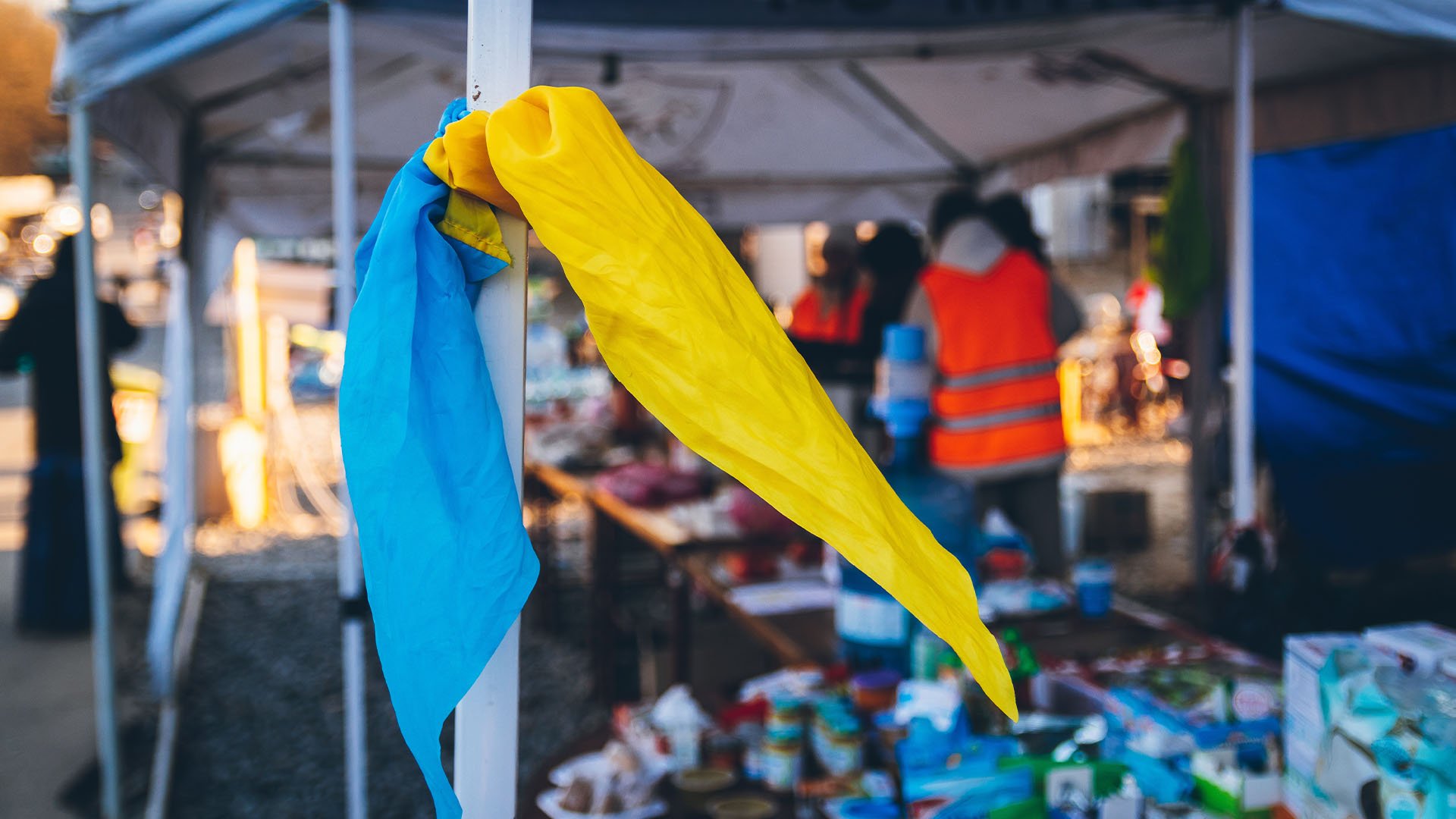You are viewing your 1 free article this month. Login to read more articles.
'We will come out of the shelters into the bookstores': Ukrainian publishing fights on
From remote, unpaid teams to book launches in bomb shelters, Ukrainian publishers and writers continue to deliver against all odds.
The third month of the war in Ukraine has started. Life has gone through dramatic changes: on the one hand, everything has been complicated, particularly the management of mundane work chores. For example, we currently cannot negotiate a significant delivery of printing paper from one place to another because such a delivery is not a priority, and diesel fuel is absent at almost every gas station, so drivers refuse to go. On the other hand, everything has simplified. From now on, everyone has a crucial task – to stay aware of the potential threats and try to stay alive. The UN has confirmed that 5.2 million people have crossed the border to escape the war. The most disturbing thing is that not only people don’t know when it will be possible to come back, but also whether there will be a where to come back to at all.
A burning question is whether Ukrainian publishers can print Russian liberal authors. Should we focus on Ukrainian-language content exclusively? What to do with the Ukrainian offices of Russian publishers who publish books in Ukrainian?
Meanwhile, most of the Ukrainian cultural community gathered at the biennial opening in Venice. Considering its number of publications, Ukraine is receiving incredible attention, with “The Fountain of Exhaustion. Aqua Alta” by artist Pavlo Makov being presented by the pavilion. The books that our publishing company had been preparing during the war in a close partnership with the curators of this important exhibition miraculously arrived on time and now peek from the shelves of Italian bookstores. Our project has been achieved.
At the same time in Ukraine, publishers are thinking about how to continue working and what to expect from our industry after the war. A burning question is whether Ukrainian publishers can print Russian liberal authors. Should we focus on Ukrainian-language content exclusively? What to do with the Ukrainian offices of Russian publishers who publish books in Ukrainian? Since some publishers before the full-scale invasion were conducting rights purchases and royalties payments through Russian offices, how might we quickly create literary agencies in Ukraine through which such activities could go through?
There are also some telling statistics prepared by Chytomo, from 26 March to 8 April 2022. Eighty-one Ukrainian publishing houses, from the smallest to the biggest, were surveyed. Among the numbers that attract attention are the following: during the first month of the war, 95,1% of publishers reported a sales decrease. Difficult access to repositories and offices and refocusing people’s interest from books to more urgent issues have played a profound role in this process. One of the most dramatic factors has become the fact that a third of publishing employees are at the front line, and that most of the others are either providing humanitarian help or fleeing to different cities or countries.
Apart from the sales reduction, 10% of publishers couldn’t continue their work at all, and 51% were forced to change their working model. Some opened offices abroad, and some had their offices or storage damaged. Another issue here is that publishers can’t afford to rent undamaged offices. Our company has fallen under this third category. We are working part-time and, unfortunately, remotely.
Another burning question is salaries. Almost a third of publishers cannot afford to pay them. I have also faced this problem and been forced to cut staff, although across all the previous five years of us operating, we have tried our best to expand the team. Today, only a couple of employees are left in the team who are getting paid, but only partly. Indeed, 55% of the Ukrainian publishers are in the same boat.
I have seen colleagues develop a greater interest in creating electronic books and establishing international connections and distribution. This is good news. Most of the work takes place “underground” – meaning in bomb shelters. For instance, in Kharkiv, a city in the northeast of Ukraine with a million and a half inhabitants that has been under the Russian artillery and missiles since the first day of the war, book presentations are currently taking place. A well-known writer, Serhiy Zhadan, who continues his work in Kharkiv every day, under fire, presented his translation of Go the F to Sleep by Adam Mansbach. During his presentation, Zhadan said he liked the idea of presenting in Kharkiv. “Even though we are in the cellar, this is still our Ukrainian Kharkiv, and this is our literature life. We will come out of the shelters into the bookstores and sports palaces, where we will gather millions of readers,” he said.
Our publishing house also decided to hold a presentation, but not in Kharkiv; in Lviv, in the western part of the country. When we first thought about holding this presentation, we had our doubts. The idea of such a public event during the war seemed out of place. We published a book, Talks on Architecture, in the first days of the conflict by two Ukrainian architects, Oleg Drozdov and Bogdan Volynsky. We had originally planned the presentation in March, but we are holding it now because of the war. Yesterday we said that life is constantly testing us: two years ago, we couldn’t organise a presentation because of Covid-19. A year ago, we were finally able to do so but were forced to adhere to the social distancing; today, before the presentation, we had to check the location of the closest bomb shelter in case of an air raid.
I am convinced that new books must be published, and presentations must be held despite all these challenges. Culture is a powerful way of influencing society. Today, books on architecture are becoming not only part of this process but also become a part of a broader context, considering what is happening to destroyed cities in Ukraine. We are preparing to rebuild cities with the support of many countries, including the United Kingdom and Denmark. And we know that this will be an extremely new experience for us, so we have to prepare for this with the professional architectural community.
Finally, I will share one of my primary feelings today: we must not waste a minute because time is one of the most valuable resources the enemy want to deprive us of. We must remain strong and vital so that we do not allow this to possibly happen.
Translated from Ukrainian by Daša Anosova.

















